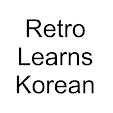There's a lot of fluff lists out there. "how to learn X language", "20 tips to become fluent in X" and 99% of the time they're all just generic advice that everyone already knew. Well this list aims to actually give you tips that you can actually use to make progress with Korean. There is no real order or priority to any of the tips but they will all benefit most people in some way.
As I have stated in previous posts, reading is simply the best way to make rapid progress in a language due to the amount of content you can cover and the large amount of vocabulary used. The tips will be useful for all levels including tips that beginners and advanced learners can use straight away.
If you found these tips helpful or have tips of your own you would like to share, let me know in the comments below. It's great to get a lot of different perspectives so that we can help future learners achieve their goals. There will likely be a part 2 so please return for that at a later date.
Below I will leave a playlist of video versions of similar tips and more.


